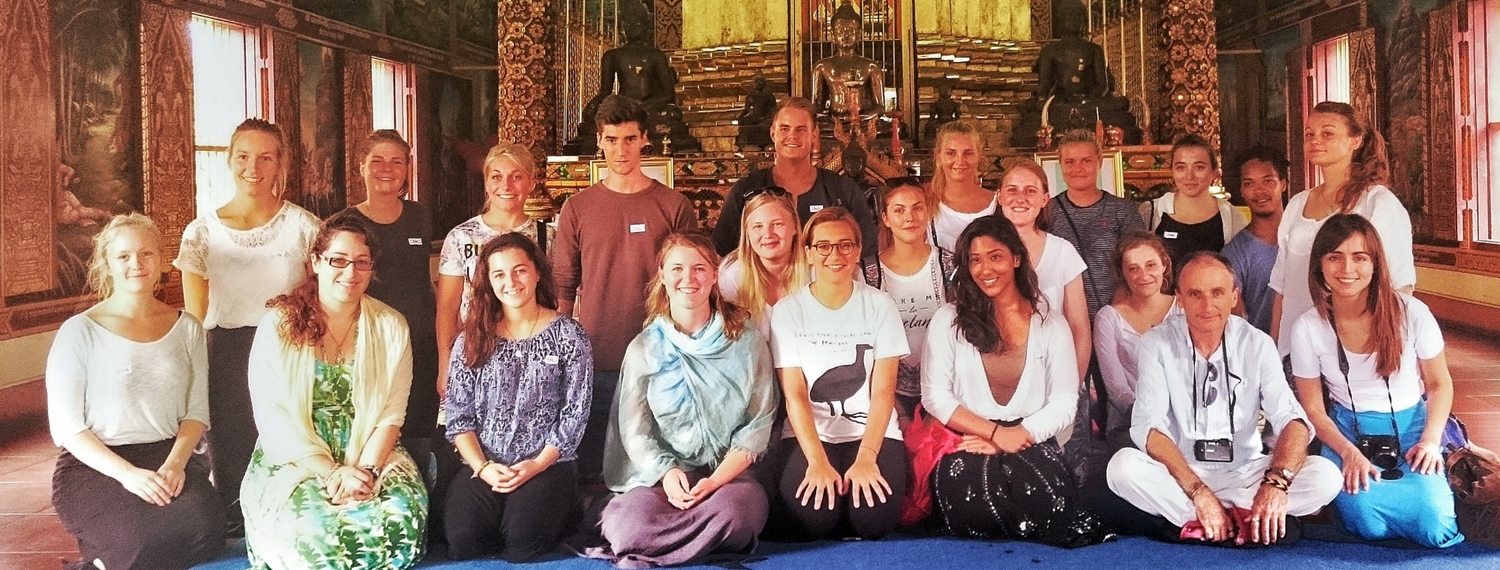Thailand Volunteering Ethics
Working and living in another country and culture provides volunteers with countless new experiences. New people and places surround volunteers everyday and understanding the culture is a vital part of living abroad. When volunteering in Thailand, volunteers are expected to work with a certain set of ethics in mind.
There are many ways people can come to better understand and respect a culture. Volunteering offers unique opportunities to see and culture first hand and stay away from the popular tourist routes. Many find when they spend time volunteering in Thailand they are finally able to slow down and breathe in the culture instead of just bouncing from temple to temple for a few quick photo opportunities. Understanding a few ethical principles when volunteers can help ensure that all the hard work volunteers do actually benefits the intended communities.
Being Courteous Towards Local Thai Customs
Before volunteers travel to a destination it’s good to do some research about the area they will be volunteering. Volunteering in Thailand provides countless ways for volunteers to interact with unique communities around the country. When working in Thailand, volunteers confront cultural differences daily. Knowing about how to handle these situations separates good volunteers from great volunteers. Most countries in Asia have a modest dress code. Women and men should dress appropriately when volunteering at our project sites, especially at the temples.
Volunteers should also be aware of the economic differences between themselves and those they are helping. Usually it’s best to leave expensive jewelry and clothes at home not only because it can attract unwanted attention but also it can be a negative reminder to those in the communities of the stark economic differences between the developing world and the 1st-world.
Being aware of local customs and etiquette is key to making strong relationships with the people of the communities that Friends for Asia serves. Traveling and working with humility and an open mind makes a volunteer’s time serving a community much more productive. For example, it’s best not to touch the top of someone’s head in Thailand as this is considered disrespectful. In addition, using one’s feet to move something or touch someone is a big no-no as the feet are seen as unclean. It’s important to be mindful of these local customs. Volunteers must observe and keep an open mind when out in the field. If unsure, it’s always good to ask a staff member or local contact if a certain behavior is acceptable. Of course, respecting property and the laws of the country are to be expected.
Supporting Local Businesses
Interacting with locals in markets, stores, temples, and schools is what volunteering is all about. Volunteers see the real side of Thai culture in these small moments and take these experiences home with them. When shopping in local markets one should always be respectful of people’s stores and merchandise. Some will not appreciate pictures being taken but it never hurts to ask before snapping a few photos. Bargaining is part of shopping in Thailand and is totally acceptable with the right attitude. If a store owner is unwilling to go down on a price, don’t get upset. In the end, the extra dollar or two means a great deal more to them than it does to a volunteer.
Anyone who has been to Thailand can attest that eating is perhaps one of the best things one can do in the country. Food is everywhere and delicious. Ask a local in Thailand, many will tell you that one of their favorite things to do is to eat. Friends for Asia always encourages volunteers to support local restaurants and try the local cuisine. Supporting local businesses while in a country contributes greatly to the local economy and not to mention it’s cheap and tasty!
Volunteering with Children
When at the project sites volunteers often work and play with children. Taking pictures is totally fine, but keep in mind that the children are not pieces in a museum and their privacy should always be respected. Conducting oneself in an ethical manner when working with children cannot be stressed enough. All volunteers are subject to a criminal background check prior to being placed at projects sites working with kids.
Being Environmentally Friendly While Volunteering
Volunteers in Thailand are encouraged to think of the environmental impacts that they have during their stay in the country. As with most of the developing world, Thailand lacks many of the recycling services and clean energy technologies that more developed nations have. Not too long ago, much of Thailand’s waste was biodegradable however, since the introduction of plastic and Styrofoam the country has what many consider to be an environmental problem. When volunteering in Thailand we encourage our volunteers to use reusable bags when shopping to cut down on the use of plastic bags. Also, eating at a restaurant instead of getting food to-go is a good way to but down on waste.
Many water and sanitation systems in Thailand drain unfiltered into the ground nearby. We encourage the use of phosphate-free soaps and detergents in order to preserve the ecosystems in the area. Moreover, the world is under immense pressure to be as environmentally conscience as possible. This would include being careful of any souvenirs that may contain animal parts, shells, or wood. Poaching and illegal farming for such materials is big business in Thailand and we want our volunteers to avoid contributing to any unethical business practices that may be occurring in the region.
Ethical traveling and tourism is something not to be taken lightly in Southeast Asia. Many of the communities we serve are underprivileged and uniquely susceptible to exploitation. Understanding a volunteer’s place in the community helps each volunteer to effectively contribute in a positive way. Be sure to travel with humility and a genuine desire to help and learn about the way other people and cultures live. Remember that different cultures do things different ways; that doesn’t make one culture better than the other, just different. Listen, observe and always stay curious. If you’re unsure about something, ask. It’s always better to ask a local about a custom or tradition than to be embarrassed by committing a cultural faux pas. Volunteering from an ethical standpoint is how we can make a difference in these communities that we serve.









